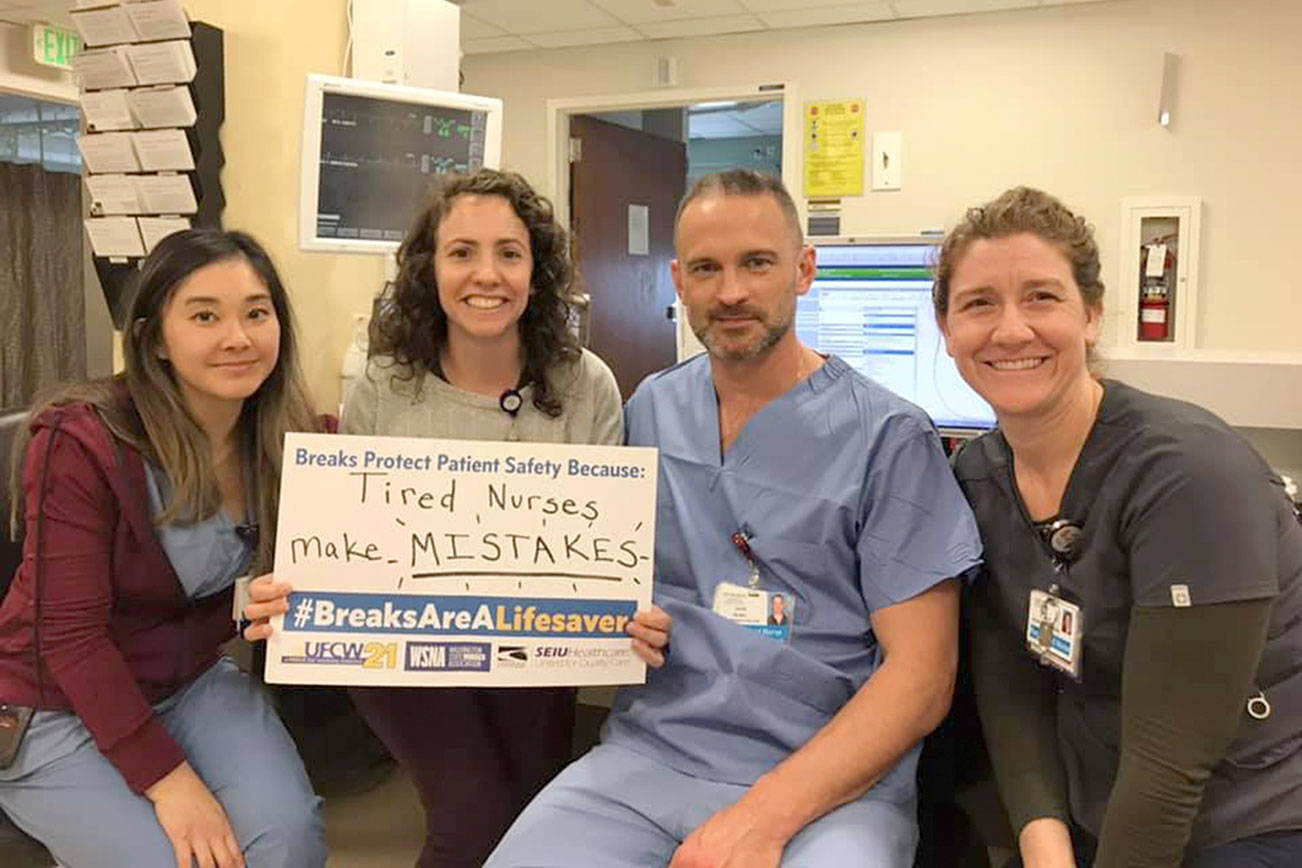After 10 years of discussion and work around the issue, both the Washington State House and Senate have passed a bill requiring health care workers to have uninterrupted breaks and placing limitations on mandatory overtime.
House Bill 1155 was passed by both the House and Senate after a conference committee formed by the two houses met to rework the versions of the bill previously passed. On April 16, the Senate passed the bill with an amendment limiting shifts to eight-hours and another amendment exempting Critical Access Hospitals from the regulations.
The final version of HB 1155 settled on by both the House and the Senate conference committees removed the two amendments, but it did add a two-year delay for Critical Access Hospitals to comply with the regulations. It passed in the Senate with a 32-16 vote, and the House approved the bill with a 70-24 vote.
On April 27, the bill was delivered to Gov. Jay Inslee who is expected to sign it into law. The regulations will come into effect on Jan. 1, 2020.
The bill requires rest periods be scheduled during the employee’s shift and that the break be uninterrupted outside of emergencies or situations that would negatively impact a patient’s health.
There are also limitations placed on the use of “on-call” overtime as it can not be used in place of scheduling regular shifts. No more than 12-hours are to be worked in a 24-hour period and no more than 80-hours in a two week period. The bill also states that no employee will be required to work overtime, and any overtime work must be voluntary.
The protections not only cover nurses but also other health care workers who provide direct patient care activities or clinical services. Surgical technologists, diagnostic radiologic technologists, cardiovascular invasive specialists and respiratory care practitioners will be covered by the bill six-months after the effective start date on July 1, 2020.
Jane Hopkins, executive vice president of SEIU Healthcare 1199NW and a registered nurse who has worked at Harborview Medical Center and Snoqualmie Valley Hospital, said nurses have been pushing for the regulations over the past 10 years, but previous legislation didn’t pass in both houses.
Hopkins said having uninterrupted breaks and limitations on overtime would create a better working environment for nurses by letting them stay attentive and engaged in patient care. Supporters of the bill all cited exhaustion as being one of the big factors that reduces the quality of patient care and can lead to mistakes in care.
As Washington State deals with a nursing shortage, Hopkins said the bill is a shot at improving the long term viability of the profession.
“This is going to make nurses want to stay in nursing,” she said.
While the regulations are delayed until 2021 for Critical Access Hospitals, Hopkins said SEIU 1199NW is not upset at the delay.
“We want to make sure at the end of it all they are getting it right for the patients and people that work there,” she said.
The Washington State Hospital Association, which has been opposed to the bill in the past, was disappointed to see Critical Access Hospitals included despite the delay. Chelene Whiteaker, senior vice president of government affairs at WSHA, cited the financial fragility of many Critical Access Hospitals in the state and said the staffing needs to comply with the bill will increase costs even further.
The WSHA was pleased that the bill included provisions for nurses to address unpredictable patient care concerns at any time rather than having to wait until after a scheduled break.


